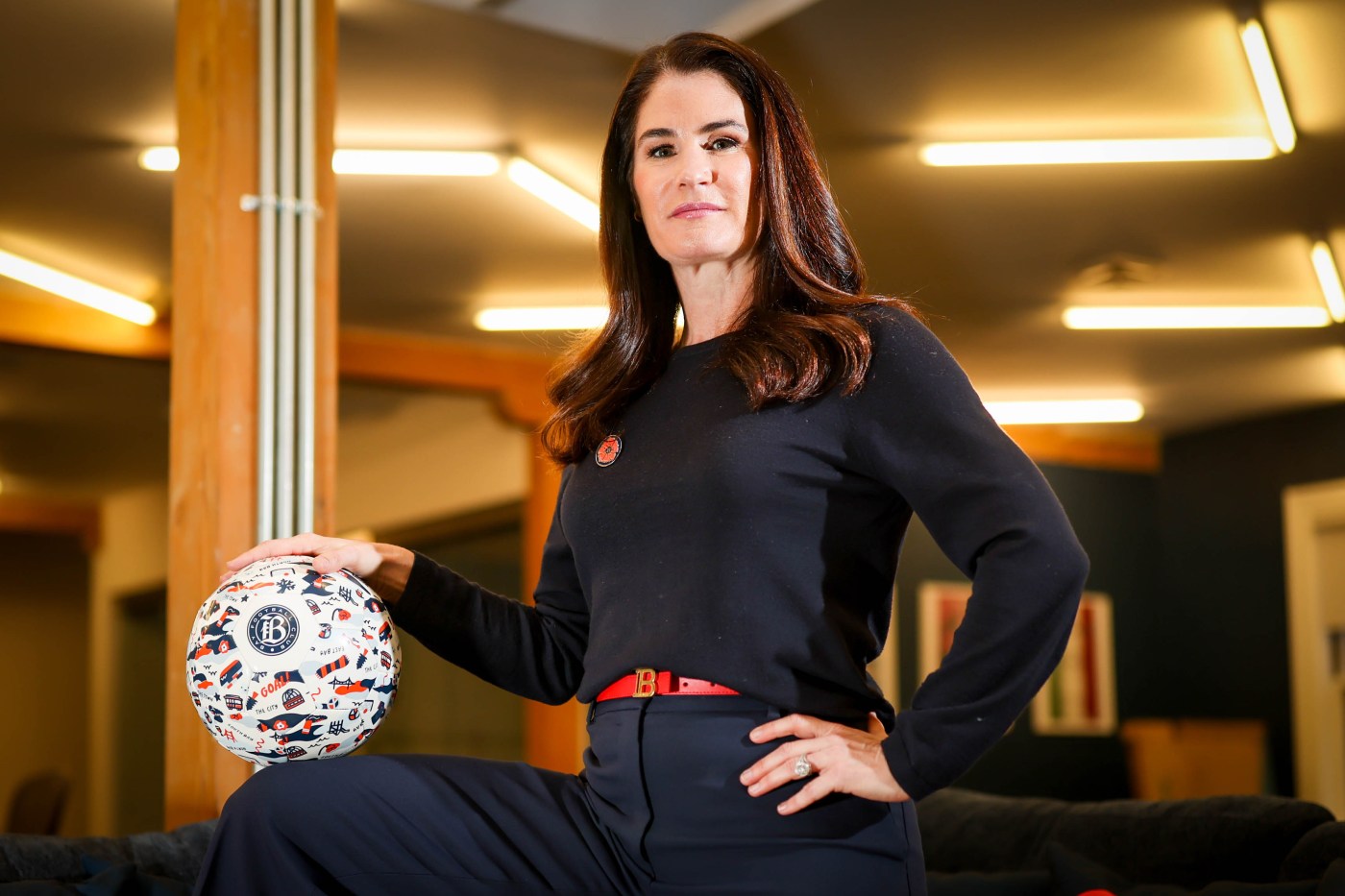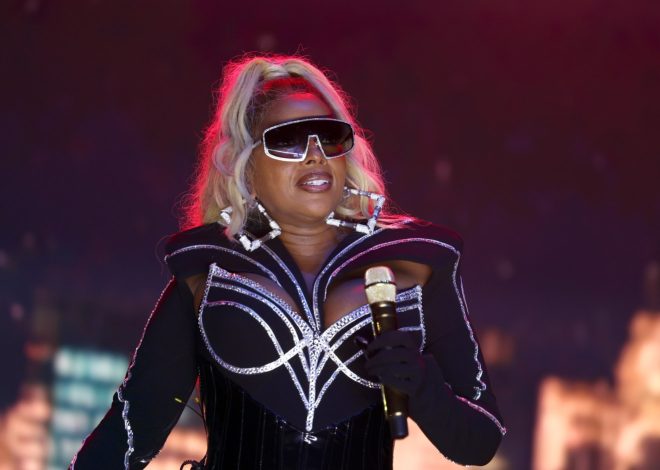
After Bay FC’s record-setting first season, CEO Brady Stewart sees a movement coming in women’s sports
Last June, Brady Stewart took a leap, leaving her career as a senior executive in the product world, where she spent 14 years at Levi-Strauss, to become the CEO of Bay FC, an expansion team in the rapidly growing National Women’s Soccer League.
Related Articles
Can’t afford to buy a home solo? This Bay Area company wants to help friends buy real estate together
New owner of beloved South Bay bakery dedicated to maintaining traditions
Mau House Cat Hotel gives your feline companion a temporary Bay Area home
Meet the new director leading San Jose’s efforts to solve its housing crisis
Meet the small business owners bringing unique cookie concoctions to the Bay Area
Global investment firm Sixth Street had put up $125 million to get the team off the ground and partnered with U.S. Women’s National Team legends Brandi Chastain, Leslie Osborne, Danielle Slaton and Aly Wagner to begin the branding.
Stewart was employee No. 1.
Eight months later, she saw Bay FC sell out its home opener at PayPal Park with 18,000 fans in attendance for what would begin a historic season in women’s soccer.
“Most pro sports teams play their first game after a two-year journey; we did it in eight months,” Stewart said. “We were on such a crazy sprint.”
This month, Bay FC wrapped up its inaugural season with a heartbreaking 2-1 overtime loss to the Washington Spirit in the first round of the postseason. But the club had already set records for most wins (11) by an expansion club while becoming just the second expansion team in league history to make the playoffs. It had sold more than 10,000 season tickets before the season even started. And the club finished the year on pace to be top-three in the league in ticket revenue, No. 4 in average attendance and No. 1 in merchandise sales while collecting more than 600,000 followers on social media.
It was a gratifying experience for the first-time CEO and former literature major at Princeton whose love of reading took her on some unexpected adventures.
The cherry on top: Stewart’s club just announced a brand new training facility to be built on Treasure Island that will become the second single-purpose training facility for a women’s sports team in the U.S. (Kansas City of the NWSL built the other).
Bay FC’s Racheal Kundananji (9) kicks the ball against North Carolina in the second half at PayPal Park in San Jose, Calif., on Saturday, Oct. 19, 2024. (Shae Hammond/Bay Area News Group)
And while professional women’s players have often had to work multiple jobs to make a living, the average NWSL salary of $56,000 (plus housing and sponsorships) is steadily on the rise, with the league’s minimum salary scheduled to move to $80,000 by 2030. Forward Rachel Kundananji, who set the world record when she was acquired from Madrid CFF for a transfer fee of almost $800,000, makes a reported salary of $500,000 a year at Bay FC.
Stewart is proud that the players at Bay FC also have access to crucial sponsorship money and professional brand-building guidance via the team’s partnership with VISA.
“It kills me that in the not so recent past, these women had to have two jobs,” Stewart said. “It’s the most popular sport in the world. The women’s game in the U.S. is at the highest level in the world. How can we make sure they’re as well known and as celebrated as their male counterparts?”
Here’s more from a Q&A with Stewart. This conversation has been edited for clarity and length:
Q: Did you play soccer growing up?
A: I played soccer from kindergarten through high school. I swam. I ran cross country and track. I loved it. I’ve been reflecting on my soccer journey because growing up partially overseas in Cairo, there were not a lot of girls’ sports. Very few young girls were able to play soccer there. So I played with the boys, and it was more of a rough and tumble environment. It helped me to continue to love the game and be aggressive on the field.
Q: What did you study at Princeton?
A: At that point in my life, I loved literature. Still do today. I was a comparative literature major, so you need to study literature in multiple languages. There’s also an element of literary theory, philosophy and art theory mixed in. I threw myself into literature. And for a lot of my college career, I’d assumed I’d be a professor and live a life of the mind.
Q: Then what happened?
A: I got an internship after my junior year, because I wanted to live in New York. A lot of my friends worked in investment banking. It was a different world in 1997, when a literature major could be considered for an investment banking role. I got a job at JP Morgan, and it was phenomenal. It was a lucky quirk of fate that put me in that place.
Q: Do you feel like you put your comparative literature major to good use?
A: Oh, 100%. The work I did was about making connections across different time periods and different philosophies. It was extremely rigorous academically and about using your academic rigor, making connections and seeing themes. That’s what leadership is, setting a vision, understanding trends, themes, synthesizing and communicating, and that’s what you do as a literature major.
Q: What would you say to kids who want to study art but are concerned about making a living?
A: Follow your passion. If you’re passionate about something, you’ll excel in it and find joy in what you do every day. We all work so hard and put so much of our heart and soul into our careers. If you’re not doing what you love, if you’re not passionate about what you do, you’re missing out on a huge opportunity.
Q: How does an investment banker become the CEO of a women’s professional soccer team?
A: One of my closest friends is Kara Nortman, one of the founders of Angel City FC (of the NWSL). I was there with her for Angel City’s home opener for their inaugural season. That was the proverbial lightning bolt moment for me. The stadium was packed, the fans were excited. It was electric. I felt it in my bones. I thought, ‘We need a team in SF. I know how big the soccer community is here. I’ve been a part of that.’ Then I heard there was going to be a women’s team here, and I felt deeply compelled.
Q: Why do you think Bay FC was able to develop such a big following so quickly?
A: Our fans in the Bay Area just welcomed the team with such enthusiasm and open arms, and it set the momentum going. The business community in the Bay Area also stepped up for us. And we were founded by former players. We’re player-centric. Everything we do, we strive to raise the bar in how we treat our athletes.
Brady Stewart, CEO of Bay FC, strikes a pose at the Bay FC headquarters office in San Francisco, Calif., on Friday, Nov. 22, 2024. (Ray Chavez/Bay Area News Group)
Q: Do you feel pressure to make sure a women’s professional sports franchise can thrive in this market?
A: Prior to taking this job, I’ve always been a very good sleeper. Since starting at Bay FC, I’ve woken up in the middle of the night with my brain racing. That is the privilege and the pressure to know we have a chance to change the world with this team. We’re well-capitalized, and we’re enabled to invest and take risks. And we’re able to push the envelope. If we get it right, we truly can change the world.
Q: What have you learned so far?
A: We should reconsider how we invest in women’s sports, how sponsorship assets are priced, how many people go to games. I think Bay FC is an inspiration to young women soccer players, and it’s very powerful. But it’s also inspirational to all young people. I have a 10-year-old son whose friends come to the games, his soccer team comes, and the boys have their favorite players. They know the players and are all engaged in the players. I think young people don’t necessarily see the difference between a men’s soccer team and a women’s soccer team. They just want a great experience.
Q: What do you hope people take away from Bay FC’s first season?
A: I used to get asked, ‘Why are women’s sports having a moment?’ I don’t like that question. The proper question is, ‘How fast is this movement growing?’ Not a moment. A movement. Those types of questions have trailed off. I think people are feeling the power of the movement. I think the learning is that if you are properly capitalized and properly aggressive, you can build a scaled women’s sports team rapidly. That’s the journey we’re on. We’re not stopping.
BRADY STEWART
Job: CEO, Bay FC
Age: 49
Birthplace: Bethesda, Md.
Grew up in: Her dad was in the Navy so she grew up all over — in the Philippines, Egypt, the East Coast and West Coast.
Residence: San Francisco
Education: Princeton University, B.A. in Comparable Literature, Harvard Business School, M.B.A.
Family: Married to Brad Stewart and mother to Saylor, 13, and Dylan, 10.
FIVE THINGS ABOUT BRADY STEWART
Stewart played soccer through high school but switched to rugby at Princeton.
Has lived in San Francisco since 1999 and considers herself a San Franciscan at heart.
Enjoyed a 14-year career at Levi Strauss from 2007 through 2021.
Her son and daughter both play soccer and attended nearly every Bay FC game this season.
She loves listening to true crime podcasts while jogging around San Francisco.
Brady Stewart, CEO of Bay FC, strikes a pose at the Bay FC headquarters office in San Francisco, Calif., on Friday, Nov. 22, 2024. (Ray Chavez/Bay Area News Group)


